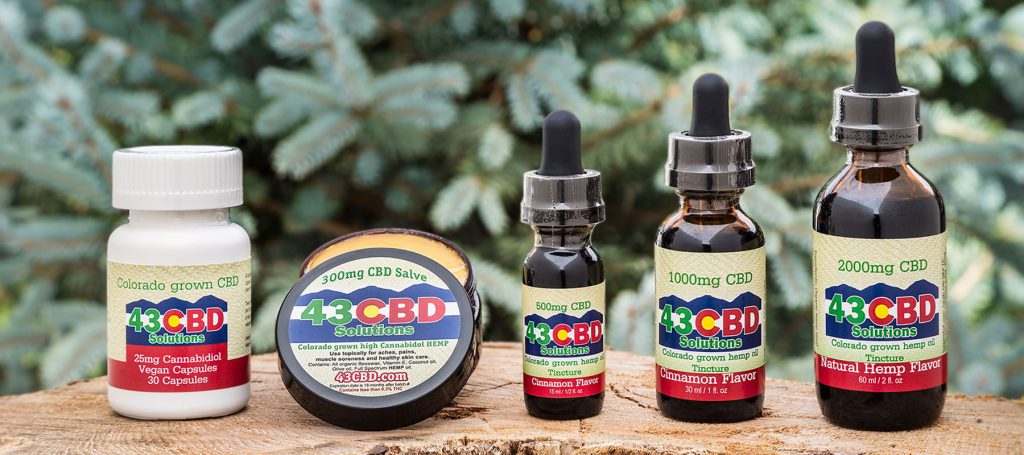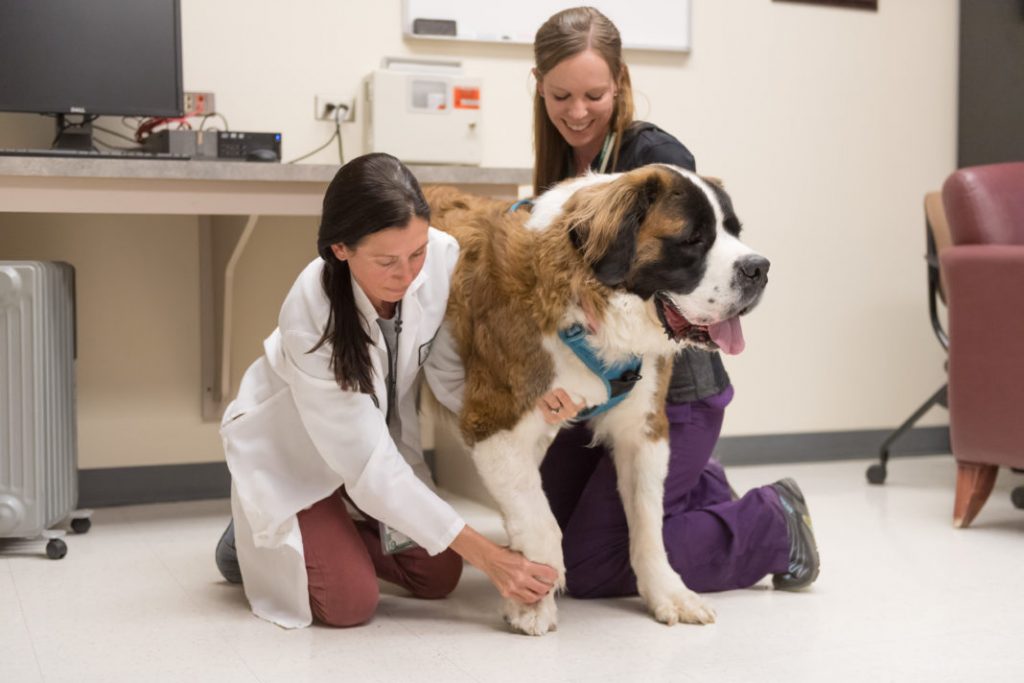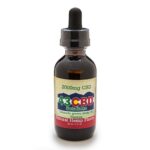
With keeping your furry friend healthy and feeling well, it is important to consider natural treatments. CBD has been an increasingly popular method for dog owners to treat certain conditions.
According to the American Kennel Club, there is anecdotal evidence from dog owners that CBD is used to treat the following conditions:
- Seizures
- Inflammatory Pain
- Neuropathic Pain
- Cardiac Issues
- Nausea
- Appetite Issues
- Anxiety
- Epilepsy
This article is aimed at providing real accounts of dog owners suggesting the benefits * of CBD for these conditions along with any previous and current research being conducted. First, it is important to understand the difference between CBD and THC.
What is CBD? Is it Safe for my Dog?
Cannabidiol (CBD), is one of many cannabinoids found in a hemp (cannabis) plant. Another cannabinoid that you may have heard of is Tetrahydrocannabinol, also known as THC. While THC is a psychoactive element, CBD products do not have any psychoactive properties and do not produce harsh side effects like THC may in pets.

While some CBD products may contain pesticides, fungicides, or solvents, natural CBD products are safe to give to your furry friend and will not produce the harsh side effects that THC has.
While it is suggested that CBD oil and other CBD products have health benefits * for dogs, it is important to research the facts and understand that there is still much research to be had to link CBD to treating conditions for pets.
What are the Side Effects of CBD for Dogs?
With any treatment for conditions in humans or animals, it is a good idea to consider any side effects. While the potential side effects of CBD are not documented in the same fashion as in humans, there are a few considerations to keep an eye out for when treating your pet with CBD.
There are few cases that reported side effects from the use of CBD which include:
- Dry Mouth
- Small Drop in Blood Pressure
- Drowsiness
- Lightheadedness
With any new treatment, it is recommended to document any changes in behavior and appearance to see if any side effects are present and the same can be said for your furry friend.

Natural CBD products made for dogs may be exactly what you are searching for but it is a good idea to understand what to look for when buying CBD products for your dog.
What Should I Look for When Buying a CBD Product for my Dog?
While CBD is safe for dogs, it is important to research each ingredient and method used to create the product. For example, one of the quickest ways to extract CBD from hemp is using solvents such as hexane and butane, which could potentially be toxic to your pet.
It is also important to know if the CBD has come from industrial or agriculture hemp that might have originated out of state or even overseas.
Also, another consideration is that not all “natural” products mean that it will be safe for your dog. For example, xylitol is a natural sweetener that is extracted from sources like birch bark, which is extremely toxic to dogs.
43 CBD Products comes from locally-grown cannabis in Colorado and does not include these toxic properties. They are also natural so you can feel safe knowing that your furry friend will not digest any dangerous chemicals. Our 500mg CBD pet tincture is a smart blend of our high CBD full spectrum hemp oil and Omega-3 Anchovy oil.
Our Fish oil is certified by Friends of the Sea as being sustainably harvested from

While CBD research is new within the scientific community, there are some great clinical studies that support the use of CBD for treating dogs with certain conditions.
Current Research for the Effectiveness of CBD for Dogs
CBD for Epilepsy in Dogs
The Canine Health Foundation has funded a Colorado State University clinical trial to study the effectiveness of Cannabidiol for epilepsy in dogs.
Dr. Stephanie McGrath, a board-certified veterinary neurologist at CSU’s College of Veterinary Medicine and Biomedical Sciences, is leading this study titled, “Efficacy of Cannabidiol (CBD) for the Treatment of Epilepsy in Dogs”.

Dr. McGrath suggests that more research on improved treatments is desperately needed for dogs with drug-resistant epilepsy.
“The timeliness and importance of research into the role of Cannabis in veterinary medicine cannot be emphasized enough,” stated Dr. McGrath. “With the changing public perception of Cannabis, it is time that we put science behind the stories and claims. We need to know if this drug is safe and if it works. If CBD is effective for treating epilepsy, it has the potential to save the lives of dogs around the world.”
To assess the potential benefits of CBD in treating canine epilepsy, each dog in the study will randomly receive either CBD or a placebo for 12 weeks. Following that, the dog will receive the opposite medicine for another 12 weeks.
The study began in January 2018 and while it is an ongoing study, Dr. McGrath gave a promising update back in July 2018.
Due to the current research at the time, she found that 89% of dogs who received CBD in the clinical trials had a reduction in the frequency of seizures. To learn more about this study or interested participants can learn more from the CSU Veterinary Teaching Hospital.
CBD Reducing Seizures in Animals
A 2019 study by the University of Reading, University of Washington, and Cambridge University studied the antiseizure effect of cannabidiol for animals. The study found that CBD is an effective and well-tolerated treatment for seizures along with having a potential disease-modifying effect well after the onset of symptomatic seizures.
CBD Treatment in Dogs with Osteoarthritis
Cornell University’s College of Veterinary Medicine conducted a study of the Clinical Efficacy of Cannabidiol Treatment in Osteoarthritic Dogs that was published in the Frontiers in Veterinary Science Journal in July 2018.
The dogs participating in the clinical study received CBD oil (2 mg/kg) or placebo oil every 12 hours. Each treatment lasted for 4 weeks with 2 weeks between each treatment.

The results of this clinical study suggested that 2 mg/kg of CBD given twice daily helped increase comfort and activity in dogs with osteoarthritis.
CBD Benefit Claims from Dog Owners
It is not difficult to find many cases of dogs in severe pain that owners reported relief from using CBD for treatment for various conditions

Georgia, a 5-year-old Cavalier King Charles Spaniel, was not reacting well to traditional medicine. That is when Conway turned to CBD for treatment.
“It has truly been a miracle and I don’t say that lightly,” Conway told CNBC. “I feel like I have a whole new dog. Georgia’s happy and relaxed. She’s not in pain. It’s amazing.”
Another article from Detroit Free Press, reports a discussion with Brad Stottelmyer and his 11-year-old dog, who was suffering from bone cancer in her right front leg. Traditional pain medication was not working for the chocolate Labrador retriever and Stottelmyer had to consider putting down his companion. That’s when Stottelmyer decided to see how CBD would play a role instead.
Within months, he claimed * that his beloved companion went from constant misery to running around the yard and chasing squirrels.
“
Is Natural CBD the Right Treatment for Your Dog?
While there are numerous cases supporting the effectiveness of CBD treatment for dogs, it is still a new form of medicine for the use of clinical applications.
There are many great clinical studies and testimonials that make strong supporting claims * but there it is recommended that you make the proper research before deciding on any new treatment.
If you decide that CBD is the right direction for you and your dog, then we recommended using products that are locally-grown, natural, and are non-toxic for dogs.
* The Food and Drug Administration has not evaluated the statements made regarding these products. FDA-approved research has not confirmed the efficacy of these products. These products are not intended to diagnose, treat, cure or prevent any disease. All information presented here is not meant as a substitute for or alternative to information from healthcare practitioners. Please consult your healthcare professional about potential interactions or other possible complications before using any product. The Federal Food, Drug, and Cosmetic Act require this notice.



